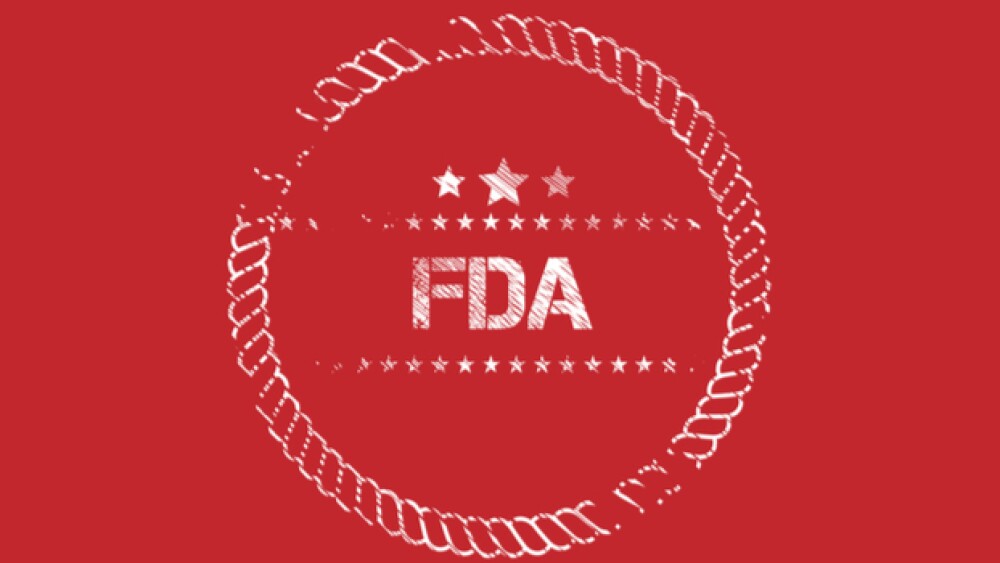May has been a fairly slow month for approvals by the U.S. Food and Drug Administration (FDA). There are currently only two scheduled for the rest of the month, with a third that has been withdrawn. Let’s take a look.
May has been a fairly slow month for approvals by the U.S. Food and Drug Administration (FDA). There are currently only two scheduled for the rest of the month, with a third that has been withdrawn. Let’s take a look.
Regeneron’s Eylea for Diabetic Retinopathy
Regeneron Pharmaceuticals has a target action date of May 13 for its supplemental Biologics License Application (sBLA) of Eylea (aflibercept) injection for diabetic retinopathy (DR). DR is the leading cause of vision loss in diabetic patients.
The sBLA submission was built on data from the Phase III PANORAMA trial that studied the drug as a treatment for moderately severe to severe non-proliferative diabetic retinopathy (NPDR) without diabetic macular edema (DME). The company announced positive topline data from PANORAMA in March 2018.
Eylea is a vascular endothelial growth factor (VEGF) inhibitor. The drug has already been approved in the U.S. for Neovascular (Wet) Age-related Macular Degeneration (AMD), Macular Edema following Retinal Vein Occlusion (RVO), Diabetic Macular Edema (DME), and Diabetic Retinopathy (DR) in patients with DME.
Bristol-Myers Squibb Cancels Date for Opdivo + Yervoy in Lung Cancer
Originally, Bristol-Myers Squibb had a target action date for an sBLA for Opdivo (nivolumab) and low-dose Yervoy (ipilimumab) combination for first-line advanced non-small cell lung cancer (NSCLC) in patients with tumor mutational burden (TMB) of greater than or equal to 10 mutations/megabase (mut/Mb). But in October 2018, Bristol-Myers submitted an exploratory overall survival (OS) analysis for that subgroup to the FDA. The agency decided that the new information was a major amendment to the sBLA and the PDUFA date was extended to May 20, 2019.
However, Bristol-Myers Squibb announced in January that after discussions with the FDA, they felt they needed more data on the relationship between TMB and PD-L1 to completely evaluate the impact of the drug combination on OS in first-line NSCLC. That will require final data from Checkmate -227, Part 1a, which is expected to be completed in the first half of this year.
Incyte’s Jakafi for Acute Graft-Versus-Host Disease
Incyte has a target action date of May 24 for its supplemental New Drug Application (sNDA) for patients with acute graft-versus-host disease (GVHD) who have had an inadequate response to corticosteroids. The FDA had extended the action date by three months after Incyte submitted additional materials per an agency request. The FDA decided it was a major amendment and extended the PDUFA date by three months.
The sNDA was originally submitted in August 2018, and the FDA gave it both Priority Review and Breakthrough Therapy Designation.
GVHD occurs after an allogeneic stem cell transplant when the donated cells launch an immune response and attack the transplant recipient’s organs. This leads to significant morbidity and mortality. There are two types of GVHD, acute and chronic.
Jakafi is a first-in-class JAK1/JAK2 inhibitor. It has been approved by the FDA for polycythemia vera (PV) that hasn’t responded to hydroxyurea. It is also approved for patients with intermediate or high-risk myelofibrosis (MF), including primary MF, post-polycythemia vera MF, and post-essential thrombocythemia MF. It is marketed in the U.S. by Incyte and outside the U.S. as Jakavi by Novartis.
The drug is also being evaluated in acute and chronic GVHD in patients who have an inadequate response to corticosteroids in the REACH2 and REACH3 clinical trials. They are expected to wrap this year and could support more regulatory submissions in the U.S. by Incyte and outside the U.S. by Novartis.





